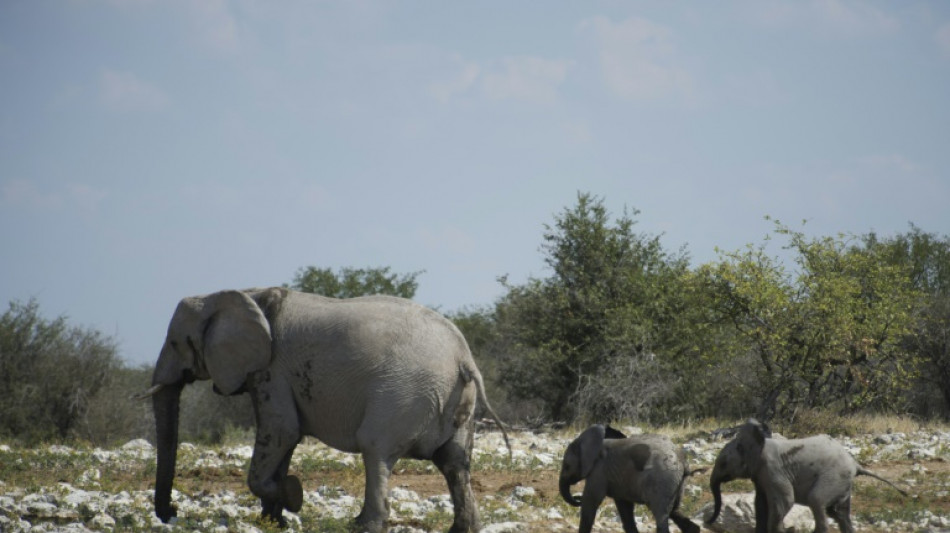
SCS
0.0200


A Namibian government cull of more than 700 wildlife to cope with its worst drought in decades is under way, with nearly 160 animals already killed, the environment ministry said Tuesday.
The government announced the cull last week to relieve pressure on grazing and water supplies, and to provide meat for programmes to support the thousands of people going hungry because of the drought.
Carried out by professional hunters, it targets 30 hippos, 60 buffalos, 50 impalas, 83 elephants, 100 blue wildebeest, 100 elands and 300 zebras.
Most of the animals are in the country's protected national parks.
At least 157 of the 723 animals designated for culling have been killed so far, environment ministry spokesman Romeo Muyunda told AFP. The time it would take to complete the cull depended on various factors, he said.
"Our goal is to carry out this operation sustainably while minimising trauma as much as possible. We must separate those animals to be hunted from those that are not," Muyunda said.
In compliance with the international ban on the sale of ivory, the tusks from the culled elephants would be stored in government warehouses.
"To date 157 animals comprising of different species were hunted... delivering 56,875 kilogrammes of meat," a ministry statement said.
Namibia declared a state of emergency in May because of the drought, which is gripping a swathe of countries across southern Africa.
The World Food Programme said in August that about 1.4 million Namibians, nearly half the population, are experiencing acute food insecurity, with cereal production plummeting by 53 percent and dam water levels dropping by 70 percent compared with last year.
The wildlife cull has been criticised by animal rights group PETA as short-sighted, cruel and ineffective.
- Outcry -
"We urge Namibia to reconsider these actions," PETA senior vice president Jason Baker said in a letter to Prime Minister Saara Kuugongelwa-Amadhila posted on the group's website.
"The plan is not only cruel but also dangerously short-sighted and will have no long-term impact on these complex problems."
The cull could lead to imbalances in ecosystems, Baker said.
"The killing of even a few elephants could devastate entire herds, leading to increased mortality among survivors and more frequent and dangerous human-animal conflicts," he said in the letter.
A group of African conservationists said in a joint statement that the mass cull sets a dangerous precedent of enabling governments "to exploit protected wildlife and national parks under the guise of humanitarian needs."
The statement questioned whether there had been environmental impact assessments or game counts and food insecurity evaluations to inform the culling plan.
It noted that the scheme comes ahead of November elections in Namibia and claimed the meat was intended to be distributed in areas where the ruling SWAPO party faces strong opposition.
The cull is also expected to generate significant revenue from hunting licenses issued to hunters, it said. It also rejected claims that Namibia is overwhelmed by large elephants numbers.
The country is estimated to be home to around 20,000 of the animals.
The World Wildlife Fund says there are about 415,000 African elephants left on the continent but the species is regarded as vulnerable with some populations being poached to extinction even if others are thriving, notably in southern Africa.
B.Clarke--ThChM